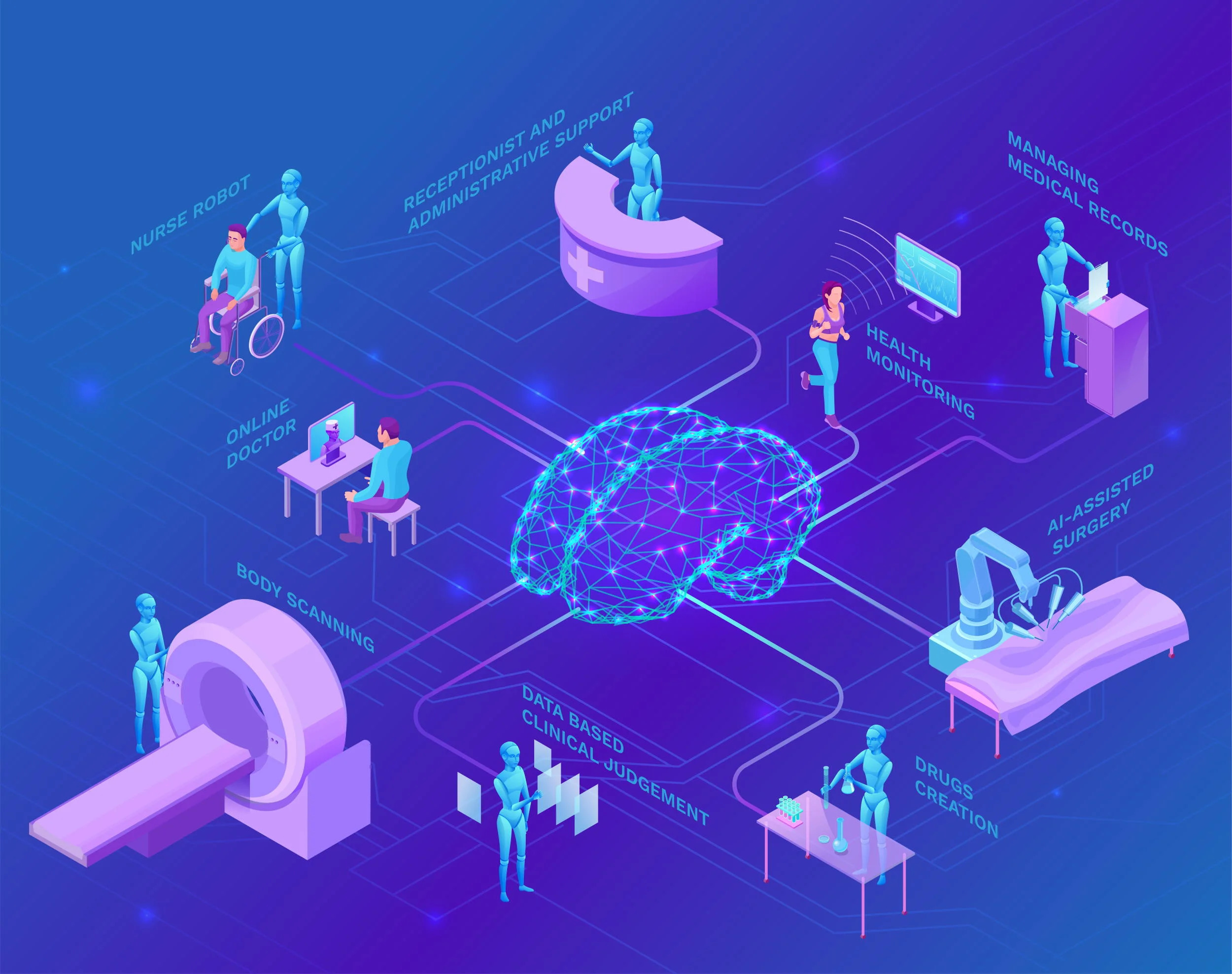
What is the role of AI in the healthcare system? AI is being used in a variety of ways to improve the healthcare system. Some of its most common applications include:
- Diagnosis: AI can be used to analyze medical images and data to help doctors diagnose diseases more accurately and efficiently. For example, AI-powered tools can be used to identify cancer cells in images, or to detect early signs of heart disease.
- Treatment: AI can be used to develop new treatments for diseases, or to personalize existing treatments for each patient. For example, AI can be used to identify the most effective drug combinations for cancer patients.
- Patient monitoring: AI can be used to monitor patients remotely, which can help to improve patient outcomes and reduce the cost of care. For example, AI-powered wearable devices can track patients’ vital signs and send alerts to doctors if there are any problems.
- Administrative tasks: AI can be used to automate administrative tasks, such as scheduling appointments and processing insurance claims. This can free up healthcare workers to focus on providing care to patients.
What is the role of AI in the future of healthcare?
The potential of AI in healthcare is vast. As AI technology continues to develop, it is likely to have an even greater impact on the industry in the years to come. Some of the potential applications of AI in the future of healthcare include:
- Virtual doctors: AI-powered virtual doctors could provide care to patients remotely, 24/7. This could help to improve access to healthcare, especially in rural areas.
- Robotic surgery: AI-powered robots could perform surgery more precisely and safely than human surgeons. This could lead to better patient outcomes and shorter recovery times.
- Gene editing: AI could be used to develop new gene editing therapies that could cure diseases like cancer and sickle cell anemia.
- Personalized medicine: AI could be used to develop personalized medicine treatments that are tailored to each patient’s individual needs. This could lead to more effective and targeted treatments.
The impact of artificial intelligence in healthcare
The impact of AI in healthcare has been significant and is only going to grow in the years to come. AI has the potential to improve the quality of care, reduce costs, and make healthcare more accessible to everyone.
- Improved accuracy and efficiency: AI can help to improve the accuracy of diagnoses and treatments, and can also make healthcare processes more efficient.
- Personalized care: AI can be used to provide personalized care for each patient, which can lead to better outcomes.
- Reduced costs: AI can help to reduce costs by automating tasks and improving efficiency.
- Increased access to care: AI can help to increase access to care by making it possible to provide care remotely and 24/7.
AI is a rapidly growing field with the potential to revolutionize the healthcare industry. As AI technology continues to develop, it is likely to have an even greater impact on healthcare in the years to come.









